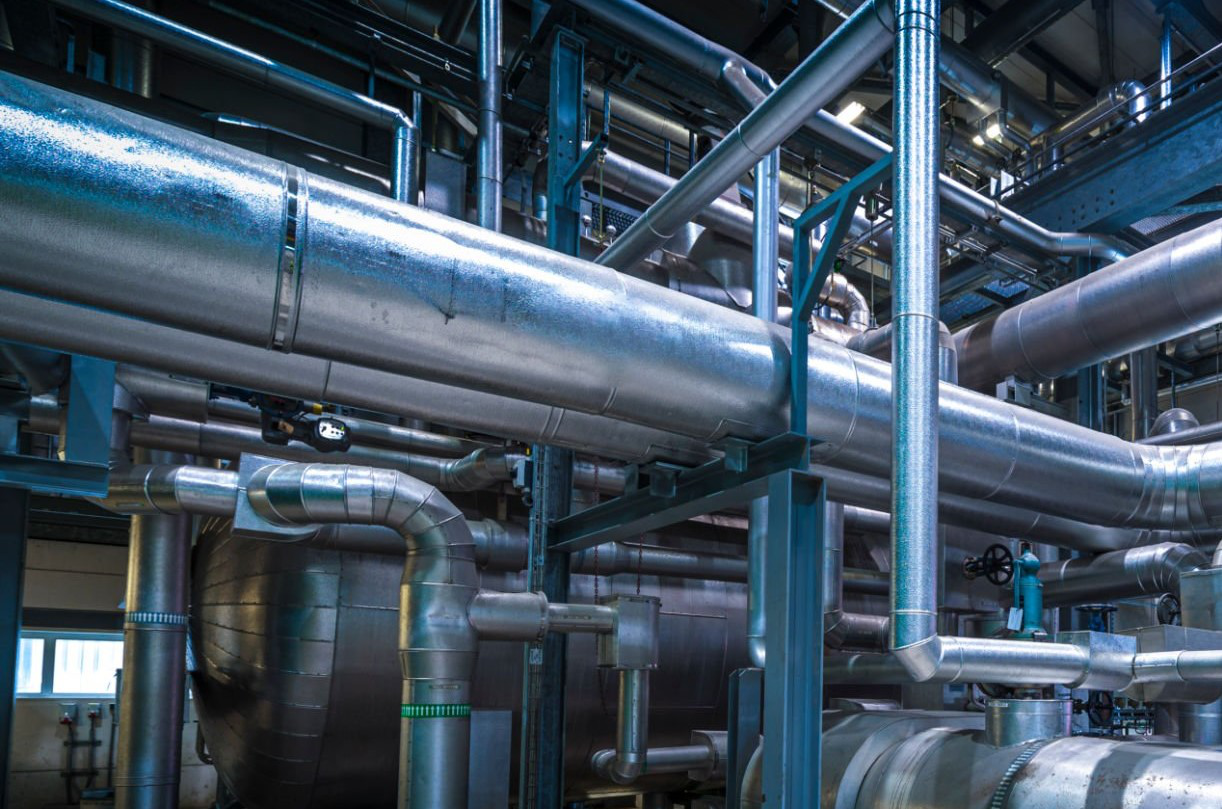Starting a journey towards expertise in piping engineering involves careful planning and securing the right certifications. This guide explores piping engineer certification, offering important details, insights, and answers to frequently asked questions to support your certification journey.
What Is Piping Engineer?
A piping engineer, one of the prominent engineering groups in the Oil & Gas, Petrochemical, Refinery, Chemical, Power-Plant, Steel, Water, and Pharmaceutical sectors, specializes in designing, analyzing, and overseeing the installation of piping systems that transport liquids and gases.
Their primary focus is on creating efficient and safe networks of pipes, ensuring the smooth flow of substances in various industries. Piping engineers play a crucial role in maintaining the integrity and functionality of these systems as they carry water, steam, gas, oil, two-phase mixture, waste, or other fluid.
How Do I Become A Piping Engineer?
To pursue a career as a piping engineer, you need a bachelor’s degree in mechanical engineering or civil engineering to develop in-depth technical knowledge about the field and learn highly specialized skills. This becomes your first step in becoming a piping engineer as you must obtain the foundational education.
After completing your degree, gaining practical experience through internships or entry-level positions in engineering firms is valuable. Familiarize yourself with computer-aided design (CAD) software commonly used in piping design. Consider obtaining relevant certifications, such as the AWS Certified Welding Inspector (CWI) or the ASME B31.3 Process Piping Certification, to enhance your qualifications.
Networking within the industry and seeking mentorship from experienced professionals can provide valuable insights and opportunities. Stay updated on industry standards and advancements by joining Piping Engineer training, as continuous learning is crucial in the dynamic field of piping engineering.
Finally, showcase your skills and experiences through a well-crafted resume and actively apply for entry-level positions in companies within sectors like Oil & Gas, Petrochemical, Refinery, Chemical, Power, Steel, Water, and Pharmaceutical.
What Are Some Common Piping Certifications?
Several widely recognized certifications are important in the field of piping engineering, verifying the expertise of professionals and boosting their career potential. Here are a few common piping engineer certifications:
1. AWS Certified Welding Inspector (CWI)
This certification is essential for those responsible for inspecting welding work, ensuring the quality and reliability of welded structures.
2. ASME B31.3 Process Piping Certification
Issued by the American Society of Mechanical Engineers, this certification is crucial for engineers involved in designing, constructing, and maintaining process piping systems.
3. NACE Coating Inspector
Significant for professionals working on corrosion prevention and control, this piping engineer certification ensures the proper coating of piping systems.
These certifications not only showcase a high level of expertise but also open doors to advancement in the piping engineering field.
What Are Some Specialized Piping Certifications?
1. API 570 Piping Inspector
API 570 certification, offered by the American Petroleum Institute (API), is designed for professionals involved in inspecting and maintaining piping systems in the petrochemical industry. It covers a comprehensive understanding of inspection codes and standards, ensuring that piping infrastructure meets the industry’s stringent requirements. Individuals with API 570 certification play a crucial role in ensuring the safety, integrity, and compliance of piping systems within the challenging environments of the petrochemical sector.
2. ASNT Level III in Ultrasonic Testing
The ASNT Level III certification in Ultrasonic Testing is crucial for piping engineers specializing in nondestructive testing methods. This piping engineer certification ensures a deep understanding of ultrasonic testing techniques, allowing professionals to assess the structural integrity of piping systems using advanced technology and methodologies.
3. European Welding Engineer (EWE)
The European Welding Engineer certification is recognized internationally and signifies expertise in welding engineering, including the design and implementation of welding processes in piping systems.
If you hold the EWE certification, you have a comprehensive understanding of European standards and practices, making tyou valuable contributors to projects and industries worldwide.
How to Choose The Right Piping Certification?
1. Assessing career goals
Start by understanding your career objectives. Consider whether you aim for a leadership role, specialization in a particular aspect of piping engineering, or a broader skill set. Align your certification choice with these goals to ensure it enhances your professional growth in the desired direction.
2. Researching Industry Requirements
Different industries may have specific preferences for certifications. Research and understand the certification requirements within the industry you are interested in. Some certifications may be more valued in certain sectors, so tailoring your choice to industry demands ensures that your certification aligns with market needs, making you a more attractive candidate.
Suppose you aspire to work in the petrochemical industry. Through research, you discover that employers in this sector highly value the API 570 Piping Inspector certification. This certification is designed to meet the industry’s standards for inspecting and maintaining piping systems. Pursuing API 570 certification aligns with the industry’s preferences, making you well-suited for roles in petrochemical companies.
What Are Some Frequently Asked Questions (FAQs) About Piping Certifications?
1. What is the significance of API 570 and ASME B31.3?
API 570 and ASME B31.3 are crucial in the piping industry. API 570 certifies expertise in inspecting and maintaining piping systems in the petrochemical sector, while ASME B31.3 focuses on the design, construction, and maintenance of process piping systems. Both certifications signify a high level of competence and are widely recognized in the industry.
2. Can I get certified without a formal engineering degree?
While a formal engineering degree is often preferred, some certifications may have alternative eligibility criteria. It’s essential to check the specific requirements of each certification. Practical experience, specialized training, or related qualifications may be considered in lieu of a formal degree in certain cases.
3. How often should I renew my certifications?
Certification renewal periods vary. Typically, certifications need to be renewed every few years. The specific renewal requirements are outlined by the certifying body. Staying informed about renewal timelines and completing any necessary continuing education ensures that your certifications remain valid.
4. Are online certification programs valid?
Yes, many reputable certifying bodies offer online certification programs. However, it’s essential to choose programs from recognized institutions like ASME and ASNT. Ensure that the online certification meets industry standards and provides the necessary knowledge and skills. Valid online certifications can be valuable and convenient for working professionals.
5. Do employers prefer certain certifications over others
Employer preferences can vary. However, certifications like API 570 and ASME B31.3 are often highly valued in the industry. Employers recognize these certifications as indicators of specialized knowledge and skills relevant to piping engineering. It’s advisable to research the specific requirements of employers in your chosen industry to tailor your certification choices accordingly.
All in all, if you enter the piping world, carefully thinking about career goals, researching what the industry needs, and choosing certifications accordingly will pave the way for a successful journey. This ensures that you can navigate the complexities of piping, contributing effectively to the efficiency and safety of the industries you engage with.
In your pursuit of a successful career in piping engineering, it’s noteworthy to mention that PetroSync offers tailored training programs designed to support your professional growth. These include essential courses such as API 570 training, ASME B31.3 training, API 510 training, and more. These training opportunities are crafted to enhance your expertise, aligning with the certifications discussed earlier in the article.
Participating in these programs not only deepens your knowledge but also equips you with practical skills, making you an asset in the competitive field of piping engineering. Consider exploring PetroSync’s training offerings to further advance your career and stay ahead in the ever-evolving realm of piping engineering.
Credit header image: iStock

SEO specialist by day, fact-checker by night. An avid reader and content writer dedicated to delivering accurate and engaging articles through research and credible sources.






